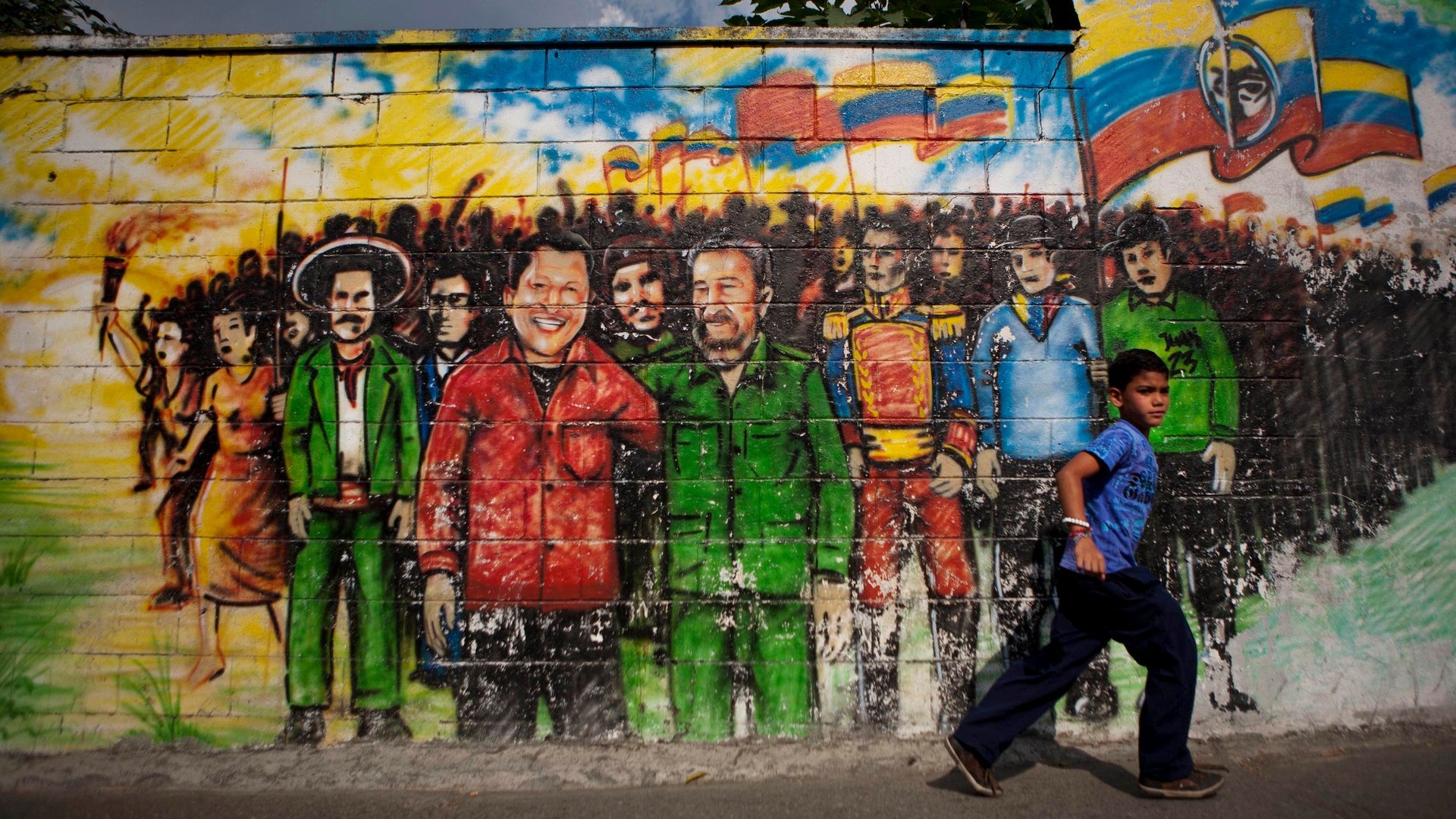Venezuela’s next leader may be chosen in Cuba
As Venezuelan President Hugo Chávez struggles to recover from surgery, Cuba may have the most say over who succeeds him.


As Venezuelan President Hugo Chávez struggles to recover from surgery, Cuba may have the most say over who succeeds him.
A parade of relatives and senior Venezuelan officials have been in Havana this week to visit Chávez, stricken with a severe respiratory infection following his fourth cancer surgery last month. But the Chávez lieutenants also appear to be holding meetings with senior Cuban officials about how a succession will unfold should the Venezuelan leader be incapacitated or die, according to experts.
One of Chávez’s visitors this week has been Vice President Nicolás Maduro, Chávez’s chosen successor and also Cuba’s favorite. But so has Maduro’s chavista rival, Diosdado Cabello, president of the National Assembly, whose power base is the Venezuelan military.
“They are sitting down with [Cuban President] Raúl Castro and other senior Cuban officials about how a transition will happen. The conclusion is that Chávez won’t be able to return,” said José Cárdenas, a former US State Department official. In an email exchange, Cárdenas also said, “The Cubans are decidedly behind Maduro. Cabello is the wild card in play.”
Others who have visited Chávez this week have been his elder brother, Adán, who is governor of Barinas state; his son-in-law Jorge Arreaza, who serves as minister of science and technology; and his oil minister, Rafael Ramírez.
On its face, Havana’s meddling is surprising. Cuba is utterly reliant on Venezuela for its oil supply and its financial stability. But Chávez feels an unusual affinity and a respect for both Fidel and Raúl Castro, from whom he has accepted political advice over the years, experts say. As part of their relationship, Cuba has gained direct influence while dispatching medical and sports personnel to the country, says Stephen Johnson, a former senior US defense official now at the Center for Strategic and International Studies.
“Among all the doctors and sports trainers Cuba has sent to Venezuela are also intelligence specialists who sit as advisors within Chávez’s inner circle and are spread out within the military,” Johnson told me. “Maduro is close to them and Cuba. Cabello in the National Assembly is not. Cuba has a lot riding on the question of succession.”
A good deal depends not just on who succeeds Chávez as the governing party’s head, but on whether Chávez himself survives the next few days. Cabello faces re-election tomorrow (Jan. 5) as head of the National Assembly—the person who, should Chávez die or be ruled incapacitated before his presidential inauguration on Jan. 10, will assume power until an election is held, within 30 days. Should Chávez be inaugurated but die afterwards, it’s the vice president who takes over. So if Cabello retains his post tomorrow, says Johnson, it would be a blow to Havana.
One figure who, unsurprisingly, has not been seen in Havana is Henrique Capriles, the opposition leader, whom Chávez beat in the October presidential election. The Cubans and the chavistas are no doubt mindful that Capriles could now be a formidable candidate, since he beat Cabello in an election for governor of Miranda state in 2008 and was re-elected to that post in November.
Opposition politicians are chafing at Havana’s involvement. Caracas Mayor Antonio Ledezma said on Jan. 3, “Venezuela isn’t a colony of Cuba.”
Late on Jan. 3, the Venezuela government sought to tamp down the rising speculation over Chávez’s condition with a statement read on national television. Information Minister Ernesto Villegas said, “Chávez has faced complications as a result of a severe respiratory infection. This infection has led to respiratory deficiency that requires Commander Chávez to remain in strict compliance with his medical treatment.” Villegas said speculation regarding Chávez amounts to a “psychological war” against Venezuela with the aim of “destabilizing the Bolivarian republic.”